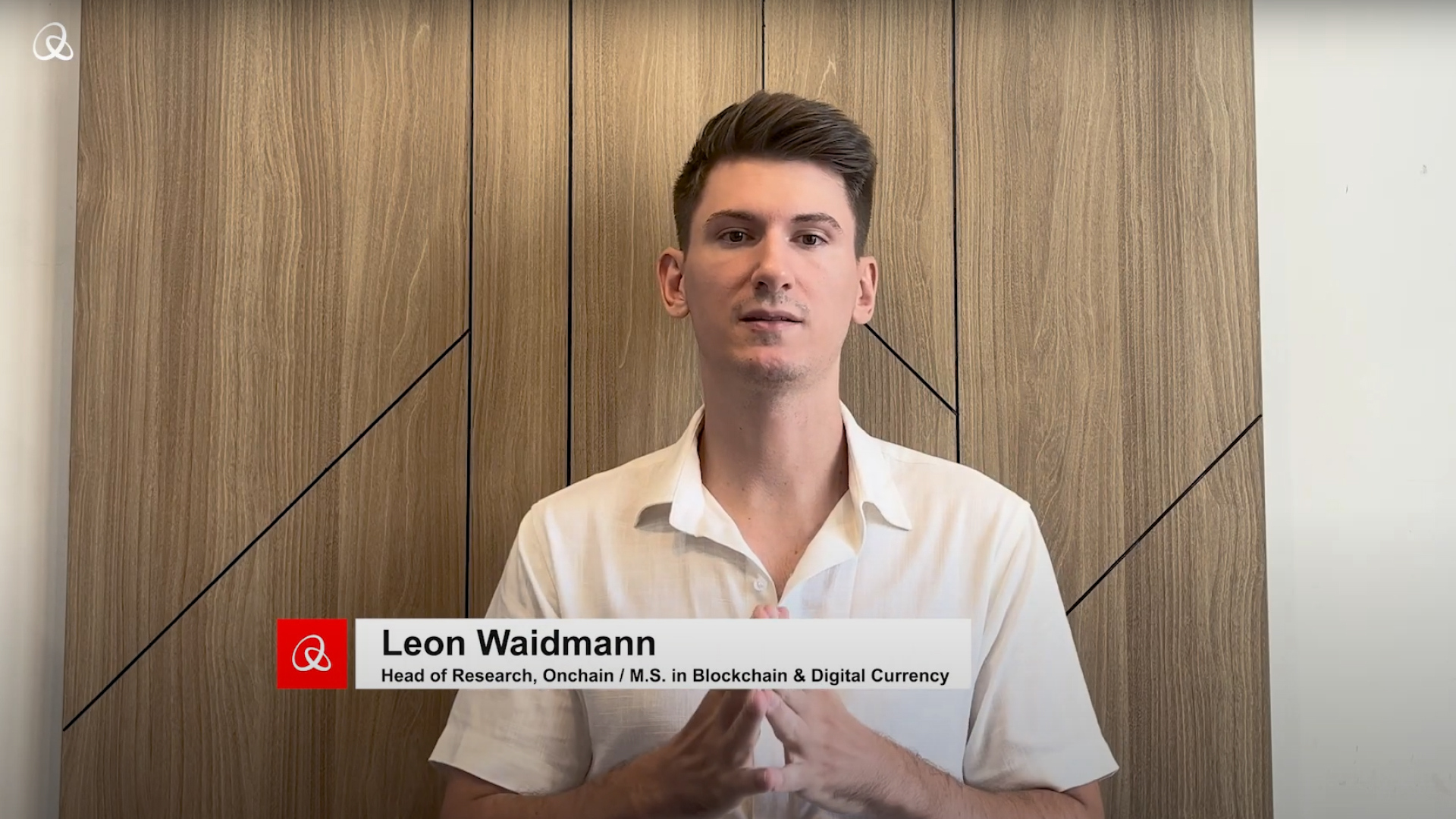You got into research to make discoveries and further your field. Why is it, that you have to spend so much time writing grants and playing politics?
Maybe you’ve heard of this thing called decentralized science (DeSci). A colleague may have pitched it as an alternative for funding, or you came across it in an angry Google search (we’ve all been there). But you don’t really know what that’s all about. We can help.
Every two months, the Onchain Research Team conducts intensive research to help you navigate Web3 as it evolves. We interviewed four researchers for their honest review of DeSci in order to build our recent in-depth DeSci report. You can watch excerpts of the interviews in our report, but let’s take a look at the key points they made.
- DeSci holds promise in solving many of TradSci’s problems, including direct funding, community participation, and collaborative research.
- DeSci offers improved transparency in data acquisition and utilization.
- Incentivizing research offers greater independence to research, but could also prioritize quantity over quality if not designed well.
- DeSci is currently optimized for healthcare and pharma research, but has yet to reach mathematical, theoretical, or computational research.
- Data quality, too, needs to be considered when designing platforms and incentives.
- On the whole, DeSci offers an exciting opportunity to improve and expand research, but it still has a long way to go.
Research is troubled
Traditional research and science (TradSci) has long been cloistered behind academic and institutional walls. A cursory Google search for ‘what are the main struggles for scientists’ returns complaints about a rigid system. Scientists are forced to follow a strict path of credentialing before they can access funding, publications, and resources. We spoke at length about this issue in this article on DeSci, but do the researchers we interviewed agree?
Overwhelmingly, the answer was yes. You may recognize their frustration about research being gatekeeped and the struggle to get funded. “DeSci offers vital reach to researchers whereas in TradSci it’s limited to institutions to collect data, [as a result] incentivization for collaborating or contributing to research is exciting… Open collaboration is definitely lacking in the traditional sector.”
This from Dr. Ananya Shrivastava, who earned her degree for analyzing Fair Multiparty Protocols using Blockchain. Her expertise is in developing algorithms to solve existing problems with Blockchain (and its limitations), giving her a unique perspective on the overlap between traditional research and decentralized science.

Leon Waidmann, MSc in Blockchain Technology, and Head of Research at Onchain added,
“[In TradSci] we have only a certain number of universities that have enough money to fund specific types of research… [And] they have a limited number of places for researchers…There are lots of limitations, a lot of challenges, that researchers have to overcome before they can even start their research projects.”
His research on comparative politics led him to hunt for better ways to manage governance, and ultimately to his studies in decentralized governance and science.
These comments probably confirm your own experience. Decentralized research aims to address the pain points that both researchers and institutions face.

How can decentralized science help researchers?
Decentralized science as an industry promises to support scientists where traditional institutions fail. The researchers we talked to shared excitement for tools like diversified funding sources, expanded data acquisition, and increased transparency.

“Motivation for research would increase,” said Waidmann of his colleagues, “if one could get directly paid for the research they conducted. Tokenized rewards may make this more accessible and open. It could also make things more efficient and more connected globally.” How might new funding sources affect your own work?
According to Waidmann, tokenization and decentralized funding for scientific work may fast-track digital adoption in of DeSci. He continued, “Tokenization could also help fellow researchers become more independent, as they will no longer rely on major institutions for funding; [research would be] more global, more accessible, and bring research into the digital age.”
Over and over, the researchers agreed that what DeSci has going for it is collaboration. Web3 participants collaborate toward funding in decentralized autonomous organizations (DAOs). They collaborate in requesting conducting research, which improves research skills. And they collaborate in publishing research (see our in-depth description of ResearchHub’s activities).
All of this improves research as a whole, and it was great to hear the vision confirmed by those actively utilizing the DeSci toolkit. This, in turn, can help those looking for how to improve research skills. They encouraged their colleagues to give it a go.

Where does DeSci need to improve?
Though the researchers we interviewed were enthusiastic about decentralized research, they also offered caution. If you want to use DeSci resources, you should be aware of the developing landscape you will encounter.
The first challenge they focused on was incentivization. Though the researchers were enthusiastic about incentives and funding, there was also a concern about scamming the system.
“Improvements for token incentives could include mechanisms that monitor and verify that the research meets the requested topics and is of high quality. If this can be solved, it will expand DeSci,” said Waidmann. “A concern is, without adequate and ethical design, the platform can be gamed very easily,” added Dr. Shrivastava.
Quantity over quality was also mentioned numerous times.
“Incentives could accidentally increase quantity rather than quality if not engineered correctly,” cautioned Vikas Jaiman, PhD in Computer Science with at least ten years of academic and commercial research experience.
It was a firm call to tokenomists to be mindful of their engineering. It’s no wonder: Jaiman’s post-doctorate work focused specifically on distributed systems and storage, where proper design is critical to system success.
They also shared concerns about the data that DeSci collects. There are several data-focused DeSci organizations working to fast-track researcher access to patients, but is the data actually useful? “Ensuring the data is representative is an issue,” said Michał Moneta, PhD in Behavioral Economics, and Assistant Professor at the University of Łódź and saw first-hand the need for quality data.

“We need more [non-Web3] participants to ensure diversity,” continued Moneta. “This could happen with token incentives and better guidance for non-degens to lower the barrier to entry. DeSci data could also be a supplement to existing research, rather than the only data source.”
This feedback provides a clear path forward for both DeSci founders and institutions interested in decentralized science to innovate and improve.
These comments were made by researchers knowledgeable about Web3.
How to improve research thanks to DeSci
The researcher’s feedback is part of our in-depth DeSci report. We wanted to accurately represent the current traction that DeSci has, while addressing some of the very real challenges that continue to exist. We hope this gives you an accurate view of the landscape of opportunities for researchers.
Learn more about decentralized science and how it could affect your research, and watch the video interviews with these four and additional researchers in the DeSci report.



